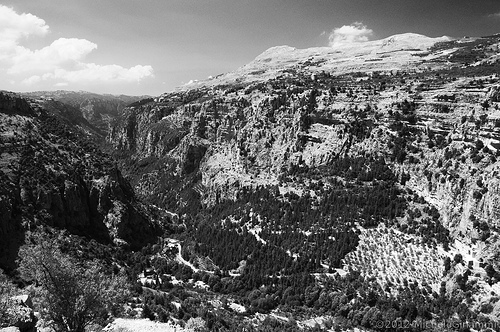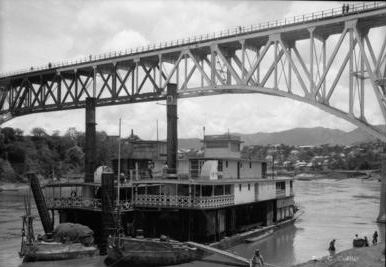"For me, at any rate, the pursuit of origins is a way of rescuing territory from death and oblivion, a reconquest that ought to be patient, devoted, relentless,and faithfull"
Amin Maalouf, 'Origins'
From the hills of the Kadisha Valley
to the Magdalena river’s ash shore.


In 1927 Salomón, my grandfather, then 17 years old, and Faride, my grandmother, then 16 years old, left Hadath el Jebbe their little Lebanese hometown on the hills of the Kadisha Valley, near the forest of Cedars and got on a boat to America with no precise destination. They sailed through the Mediterranean Sea, to Marseille, across the Atlantic Ocean and unpredictably ended their travels at the Colombian port of Barranquilla.
They settled down in a little town called Girardot on the Magdalena River’s shore and started a prosperous textile business. On the years that followed their arrival, seven children filled their lives in this new continent. Salomón and Faride unlearned Arabic to discover Spanish. They kept their mother tongue a secret between them that none of their children would ever fully understand.
They planted Lebanese aromatic cooking herbs in their garden to guard their habitual comfort food flavors. These sensorial souvenirs and culinary traditions are practiced and preserved in my family. Memory keepers, they are active reminders of our origin. As time passed by and this port city became bigger and more important, the Lebanese community that there settled, grew. Cafés on the terraces where crowded by Lebanese men. The Arabic words would fill the air and seem to float on the smoke twirls of their cigars.
Only telegraphs and some letters were sent and received to and from their families in Lebanon. Unfortunately, two fires swallowed and destroyed two of their households and along with them pictures and letters, essential evidence of their life story. Their third and last dwelling is still occupied by their furniture and some personal belongings. It has remained stubbornly unchanged and silent for decades after their death.
This house is my Lebanese lineage archeological site. Salomon and Faride did not return to their much-loved homeland. When my aunts and uncles retell their story, it seems that they left Lebanon knowing that they would never go back. Yet, sometimes it feels that they were in fact truly waiting for a homecoming that never happened. I didn’t meet my grandparents. They became mythological and mysterious characters to me.
From a very early age, I started to untangle their nostalgic memory and weaved it in me as part of my personal history. During the past years I have placed back together some mayor pieces of their immense and incomplete life puzzle in the look for my origins. I retraced the way back to their homeland and learned to recognize the melody and understand the words their language, my own ‘lost’ tongue.
Their story, and the myths and memories that revolve around them are part of my personal archeological search and are a great source of inspiration to my work.